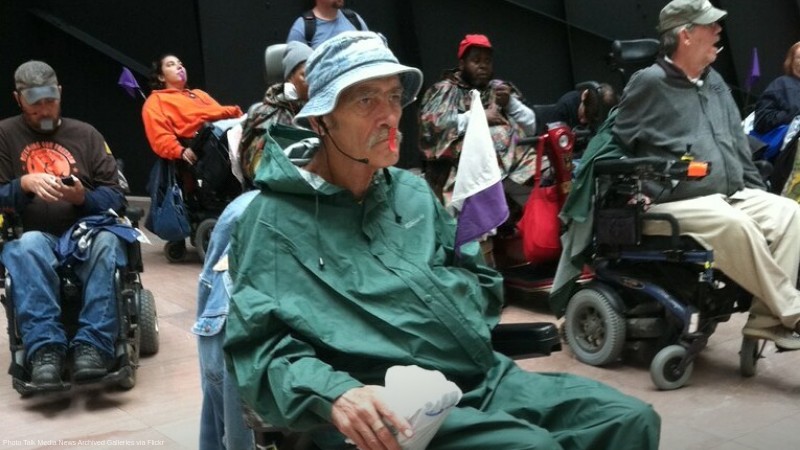Medicaid has long been a vital source of healthcare for low-income seniors, especially for those who require long-term care. In New York, the program serves as a crucial lifeline, providing healthcare services to a growing elderly population.
However, proposed Medicaid cuts and changes to eligibility could have serious consequences, threatening access to care for the state’s most vulnerable residents. If enacted, these changes could force many seniors into institutions or leave them without the necessary care they need.
Key Takeaways
Proposed Medicaid cuts in New York could severely impact elderly residents by reducing access to essential long-term care services.
- A new five-year eligibility rule for home care assistance may disqualify seniors who transferred assets within the past five years, even if legally done.
- Converting Medicaid to block grants or setting per capita spending caps would drastically reduce funding and lead to fewer resources and longer wait times for care.
- Seniors should consider long-term care insurance as an alternative to ensure they have access to necessary services in case of future Medicaid changes.
Medicaid: A lifeline for New York’s elderly
Medicaid is a cornerstone of healthcare for millions of seniors, especially those who need long-term care services like home care or nursing home care. In New York, the demand for such services is growing, as the state’s elderly population continues to increase. Medicaid helps bridge the gap for seniors who cannot afford the costs of these services. Without it, many would face overwhelming financial burdens or, worse, be unable to access essential care at all.
New York’s Medicaid program is one of the largest in the nation, providing health coverage to over a million low-income seniors. As the population ages, the need for Medicaid-funded long-term care is expected to rise. But the proposed federal Medicaid cuts could significantly disrupt the ability of the state to meet these needs.
Inna Fershteyn, a well-known elder law attorney in New York, cautions that these proposed changes could push many seniors into institutional care or leave them without essential support.
The impact of Medicaid cuts on senior care
Proposed cuts to reduce the federal budget deficit could severely impact New York’s Medicaid program. A major concern is a new five-year eligibility rule for home care assistance, which may disqualify seniors who transferred assets within the past five years, even if done legally.
The introduction of a five-year look-back period is particularly alarming. This rule does not currently exist in New York but would have significant implications if implemented.
Seniors who have transferred assets in the last five years, even for valid and lawful reasons, could be denied the essential home care services they rely on. Fershteyn emphasizes that this policy shift goes beyond a simple administrative change, it could result in thousands of seniors being placed in institutions or left without the critical care they need.
Fershteyn emphasizes that such changes are not just administrative; they could have devastating real-world impacts. “This new rule could be devastating. It’s not just an administrative change; it has real-life consequences for those needing home care,” she warns. Seniors who would otherwise qualify for Medicaid would suddenly find themselves ineligible, forcing many into nursing homes or leaving them without any care options.
Other proposed changes, like converting Medicaid to block grants or setting per capita spending caps, could drastically reduce funding, leading to fewer Medicaid resources and longer wait times for care. These cuts would impact New York’s growing senior population the most.
Financial strain on providers and seniors
As Medicaid funding decreases, healthcare providers in New York, particularly those serving seniors, could face financial strain. Nursing homes and home care agencies, which rely on Medicaid, may struggle to stay open, leading to fewer care options, worse health outcomes, or forced moves to institutional care.
Cole Brahim, an associate professor at the Medicaid Policy Lab, explains the potential catastrophic effects of such Medicaid policy shifts: “Unprecedented cuts could cripple the program. They propose capping spending per enrollee and eliminating the enhanced federal match rate for those enrolled through Medicaid expansion.” This could force states like New York to reverse Medicaid expansions, leaving millions of low-income individuals—including seniors—without coverage.
Furthermore, the introduction of work requirements for Medicaid enrollment would make it more difficult for seniors to maintain coverage, even if they are employed. This could exacerbate the already existing disparities in healthcare access, particularly in rural and underserved areas, where seniors face even greater challenges in finding care.
Exploring long-term care options and planning
As Medicaid faces increasing pressure, seniors and their families may need to explore alternative long-term care options, such as long-term care insurance.
This type of insurance can provide coverage for services not typically covered by Medicaid, including home care, assisted living, and nursing home care. Long-term care insurance can offer a safety net for individuals who are concerned about Medicaid’s future, though it comes with its own complexities. Careful planning is necessary to determine the best coverage options for individual needs and budgets.
By incorporating long-term care planning into their overall financial strategy, seniors can ensure they are prepared for whatever changes may come to Medicaid. Understanding the benefits of long-term care insurance, such as flexibility in choosing care providers, and selecting the right coverage options is essential. This proactive approach can help seniors maintain their independence and access the care they need, even if Medicaid becomes less reliable in the future.
Protecting senior care in New York
The future of Medicaid in New York is uncertain, with proposed cuts like the five-year eligibility rule and per capita spending caps potentially leaving seniors without care, forcing them into nursing homes, or causing long wait times. Inna Fershteyn stresses the urgency of protecting seniors’ well-being.
As Medicaid’s future is at risk, seniors should consider alternatives like long-term care insurance. By planning ahead and exploring coverage options, they can better secure their healthcare needs as New York’s senior population grows.















